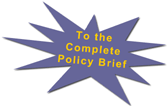Jean
Davies, Goins Elementary School,
Cheyenne, WY
Research Question:
In what ways could teachers educate/communicate with parents so parents better
support their children’s learning?
I have been teaching fifth grade in a Title One School in Cheyenne, Wyoming,
for over sixteen years. It has always been difficult to get parents involved
in academic activities in the classroom. I chose to design activities that
would make parents and guardians more visible in the classroom in order to
research its effects.
Each month a new activity was presented and parents were encouraged to
participate. The following activities were undertaken:
o September:
Parent Information Night;
o October:
Parents invited to spend one hour in class;
Halloween party;
o November:
Extended parent conferences offered;
Thanksgiving luncheon;
o December:
Parent volunteer readers for Christmas
stories;
Christmas party;
o January:
Parent participation in classroom science
lesson;
o February:
Health Fair/ Parents invited to actively
participate.
I have kept a portfolio with comments from parents during their visits, as
well as comments about student achievement and behavior after the parent
visits. I have made some behavior phone calls, all to parents who have never
participated in any classroom activity. I used mid-term grades, report cards
and classroom assessments to measure student achievement.
After five months with a variety of classroom activities, I have been able to
analyze the data and draw some conclusions:
o Parents are more supportive of learning;
o Parents demonstrate better understanding of standards and benchmarks;
o Student attitudes are more positive toward learning; and
o Student achievement has not increased significantly with parent
involvement.
This study explored ways teachers might educate/communicate with parents to
enable them to better support their children’s learning. This action
research study has important implications for educational policy. Questions
raised by this project, which need further investigation, include:
- Are parents unwilling or incapable of
assisting students with academic work at home?
- What is the relationship between quality
teachers and student achievement in a Title One School?
|